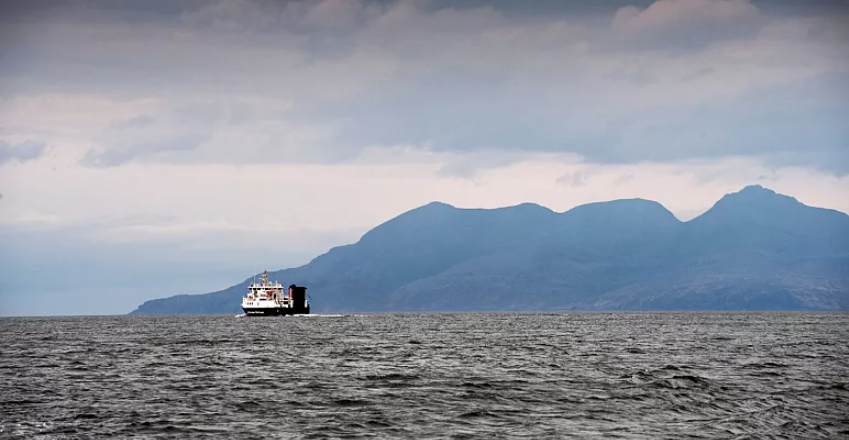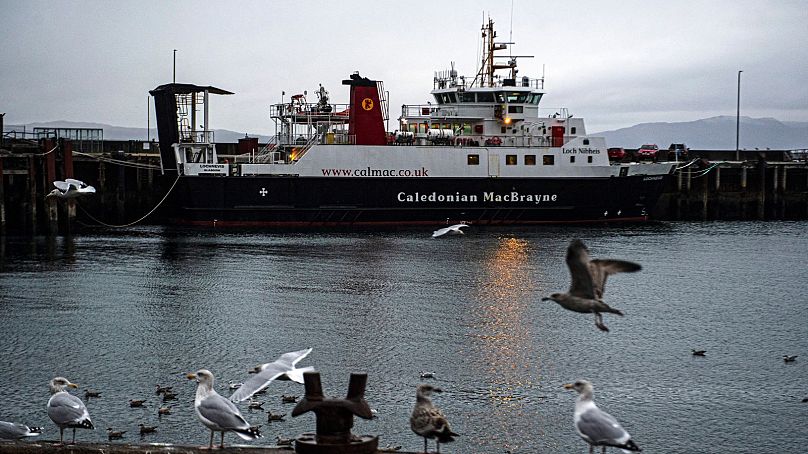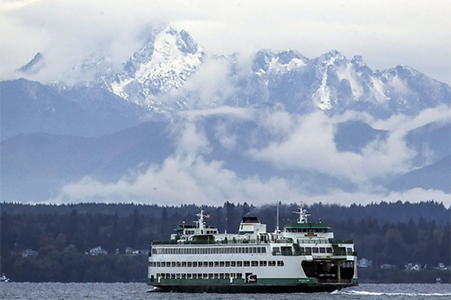Locals and businesses question whether they should stay on islands or move because of withdrawn and delayed services caused by an ageing fleet
||| FROM EURONEWS |||
The future of many of Scotland’s island communities are being put at risk by the unreliable state of the country’s ageing ferries, which have seriously impacted the ability of islanders to get to the mainland for medical care, and stopped essential supplies reaching islanders.
Most of the islands in the west of Scotland rely on services from a state-owned company called Caledonian MacBrayne.
The average age of its ferry fleet is higher than 24 years, with many large boats even older than this.
The ageing boats are developing more faults, which leads to delays and cancellations, an issue which has been compounded by delays and massive cost overruns in getting new ferries completed, in a process dogged by accusations of financial mismanagement and incompetence on the part of the Scotish government.
As a result, ferries have been moved from one route to another to cover what are described as “lifeline” services.
Most recently, there were protests after the South Uist to Mallaig service was withdrawn for almost an entire month, and in some cases local shops in island communities have had to ration basics like milk and bread.
Angus Campbell of the Ferries Community Board, a group set up to ensure operators hear the views of people who use the services, tells Euronews that almost every route had been affected at one point, adding “wherever you start taking away capacity to fill a gap somewhere else you’re leaving a gap for service”.
He said the state of the ferry services had threatened the future viability of the islands, because people had been questioning whether they should leave.
“Everywhere you go you hear of people having to make decisions to leave islands because it could be that they don’t feel they have access to services,” he said. “It could be health services, it could be they’re just fed up living their life where they don’t know whether goods are going to come in or not.
“Particularly in these industries that are dependent on ferry services, there is a lot of questioning whether they should be based on the islands any more or should relocate to the mainland where they don’t have the added headache of ferry failures to deal with.”
**If you are reading theOrcasonian for free, thank your fellow islanders. If you would like to support theOrcasonian CLICK HERE to set your modestly-priced, voluntary subscription. Otherwise, no worries; we’re happy to share with you.**









A grim reminder that it can always get worse!
Sounds familiar. Add to those problems the extra cost of living here—and in fact affording a place to live.
Wow. same old same. Then the government insists they be electric or hybrid, which is about ten times as expensive as gas or diesel – but nuclear powered is no answer either. there is no ‘clean energy’ – all have their flaws and ways of hurting the environment; mining, fracking, radioactivity for hundreds of years, dams for hydro, which starve out ocean life. There are those wealthy enough to jet-set and fly. Jet fuel is one of the worst polluters. There are no easy answers and the state- owned and monopolized ferry systems are in trouble. Privatization will be unaffordable for most of the people – if the State would even consider giving up their monopolies.
Problem in Scotland is they don’t have replacements when a ferry needs maintenance, which sea going vessels frequently do. That’s not an issue here … WSF has 21 ferries and are only operating 15 or 16 on their current summer schedule (historically 19) depending mostly on crewing. And average age of 24 years of Scottish ferries is quite good … commercial ferries are generally designed for 60 year service life with usually one major renovation somewhere in that life span.